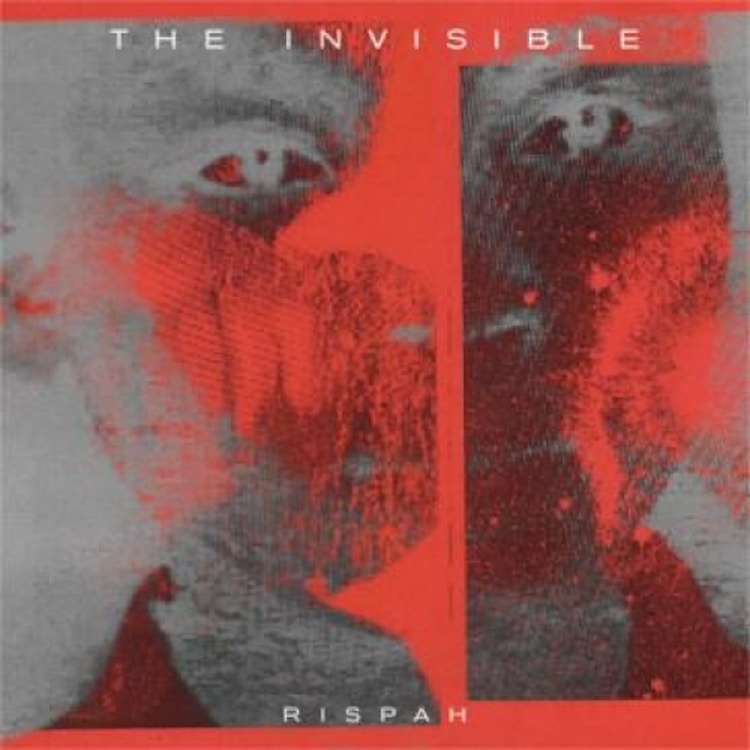"Rispah"

“This is serious.” These are the first words we hear, sibilant and thick with distant thunder, on The Invisible’s follow-up to their self-titled, Mercury Prize-nominated debut from 2009. As a herald for the album to come, it could hardly be a more apt précis. The artistic direction of Rispah shifted dramatically after the death of frontman Dave Okumu’s mother (after whom the album is named) during its recording. Who knows what album we would have got if tragedy and grief hadn’t struck Okumu at that particular time, but Rispah trembles with such a sense of yearning and compelling sincerity that speculative “what ifs” are quickly blown out of the water.
Okumu has noted that hearing mourners singing traditional Kenyan spirituals during his mother’s wake reignited his desire to connect with music. “They transformed the atmosphere with sound and the spirit they brought to it”, he said. “They were celebrating life and death, grief and hope, all things.” It’s this spirit of exploration, of engaging with the whole emotional spectrum of mortality and loss, that drives Rispah, and not only because classical Kenyan vocals are subtly integrated into the band’s sound at key moments in the album.
Fans of The Invisible’s first album will already know that Okumu, along with bassist/synth-man Tom Herbert and drummer Leo Taylor, excel at crafting intricately detailed pyramids of sound, slashes of guitar and electronics tied together and brought to life by Herbert and Taylor’s rock-solid rhythm section. On Rispah, the group’s astonishing musicianship and discipline is immediately apparent, along with the album’s considered production. The synergy between the songs’ constituent parts is so effortless that each track seems to breathe for itself, laying on dense slabs of sound or pulling back to near-silence at all the right moments.
The album flows at a pace that fits Okumu’s outlook as the songs progress, the music flexing and contracting to match his journey through the stages of grief. The clinical electronics and deep, cold rhythms on ‘Lifeline’ convey a jittery isolation as Okumu shivers like a cold-turkey junkie trying to make it through one more night, singing “The lifeline only comes/When you’re on the verge of drowning” like a personal mantra. ‘Generational’’s fear of the future is reinforced by a foreboding, labyrinthine interplay of guitar and bass that prowls like an uncoiling threat.
But there’s hope too. ‘What Happened’ ditches the heavy groove in favour of an oscillating, near-euphoric wave of layered synth and harmonised vocals that seems to take us from tragedy and self-doubt to a sudden moment of clarity (“One thing is certain/I’m not afraid anymore”).
Musically, these songs prompt a host of reasonable comparisons – echoes of Radiohead in their complexity and intellectual rigour, little hints of TV On The Radio in Okumu’s articulate croon, even a few links to Errors-esque post-rock/electro hybridism in their more strident moments – but a laundry list of sonic parallels doesn’t do justice to Rispah’s absorbing mix of musical control and composed creativity.
It’s true that The Invisible have sacrificed a little of the musical and emotional range found on their debut to achieve its own detailed, unified tone. This is an album of focused intensity from beginning to end – there’s no ‘London Girl’ or ‘OK’ here, no shaking hips or tapping toes to break up Rispah’s long kiss goodnight. But as disappointing as a comparative lack of funk might be, it’s a small price to pay for what The Invisible have achieved here, creating an album that finds a near-perfect balance of musical poise and emotional force. Serious stuff, indeed.
Get the Best Fit take on the week in music direct to your inbox every Friday

Halsey
The Great Impersonator

Katie Gavin
What A Relief

Elias Rønnenfelt
Heavy Glory





